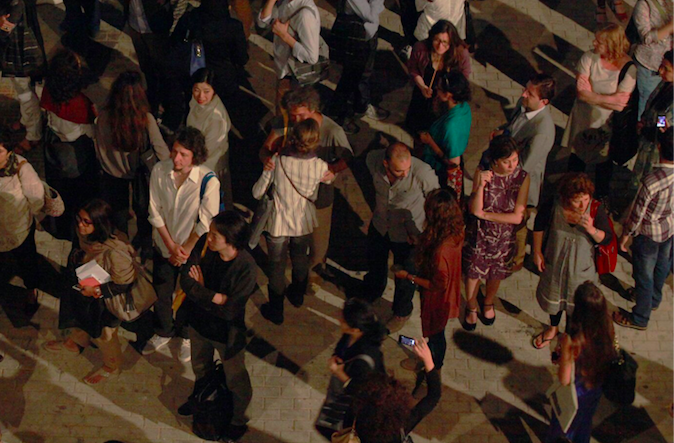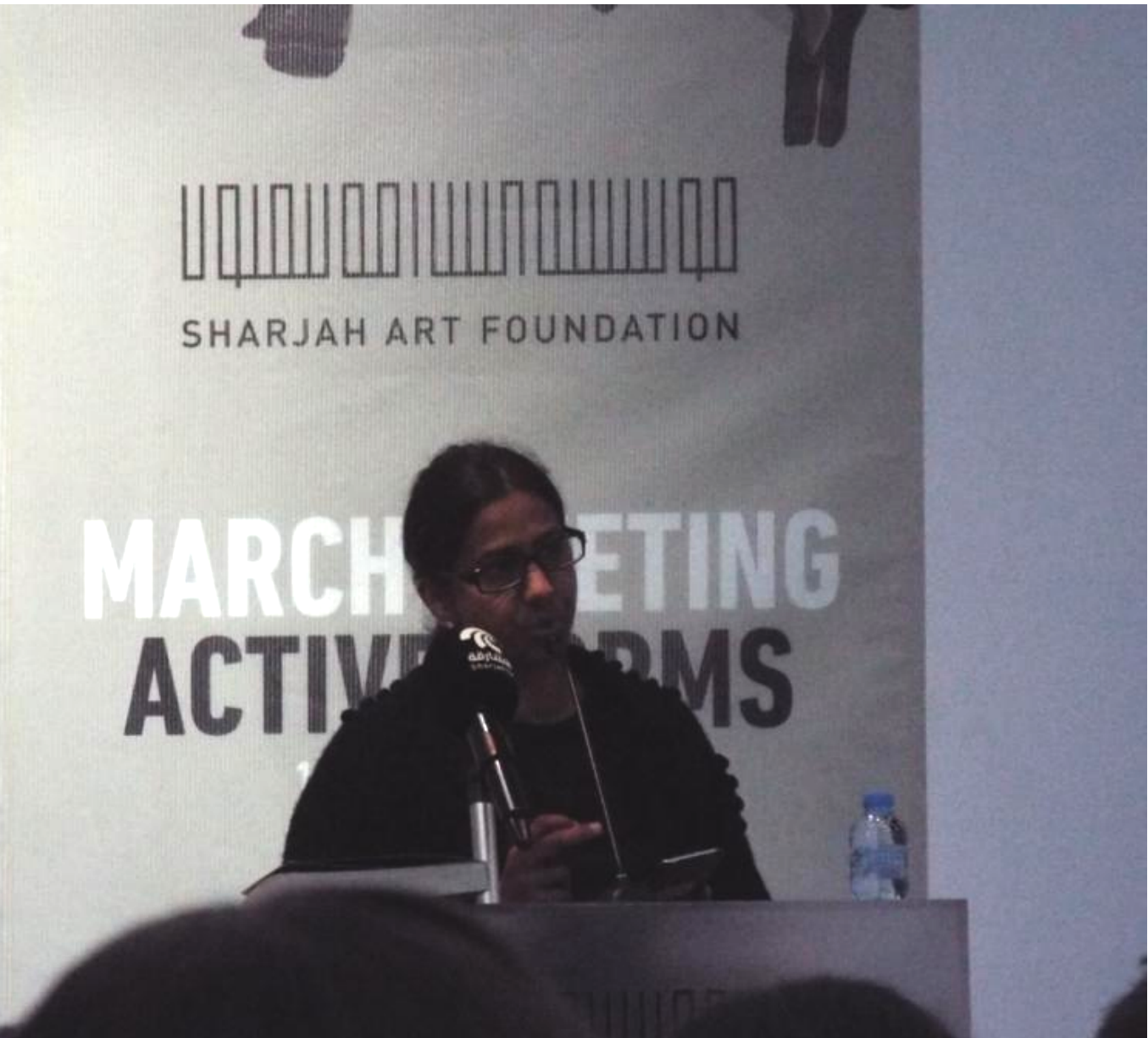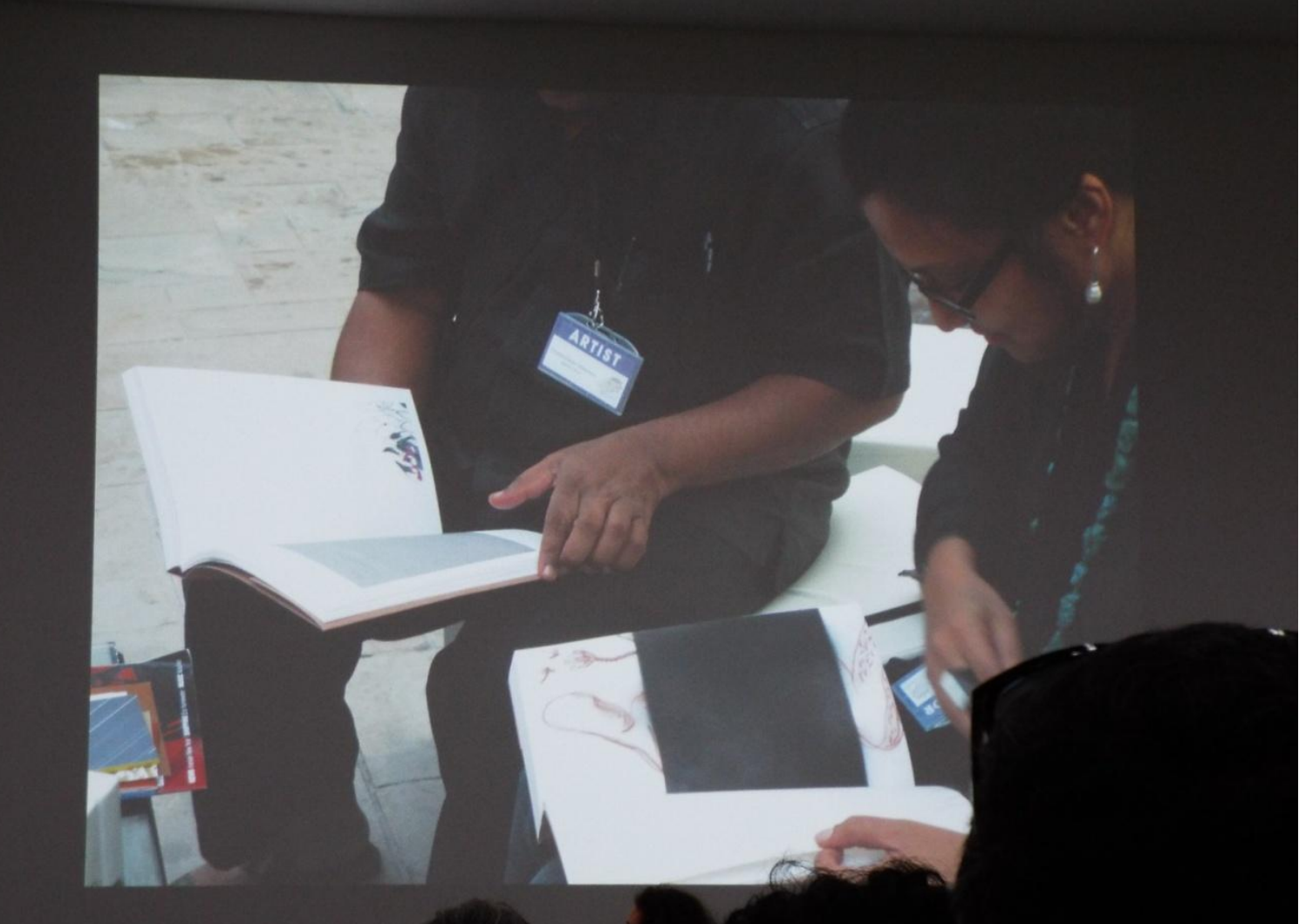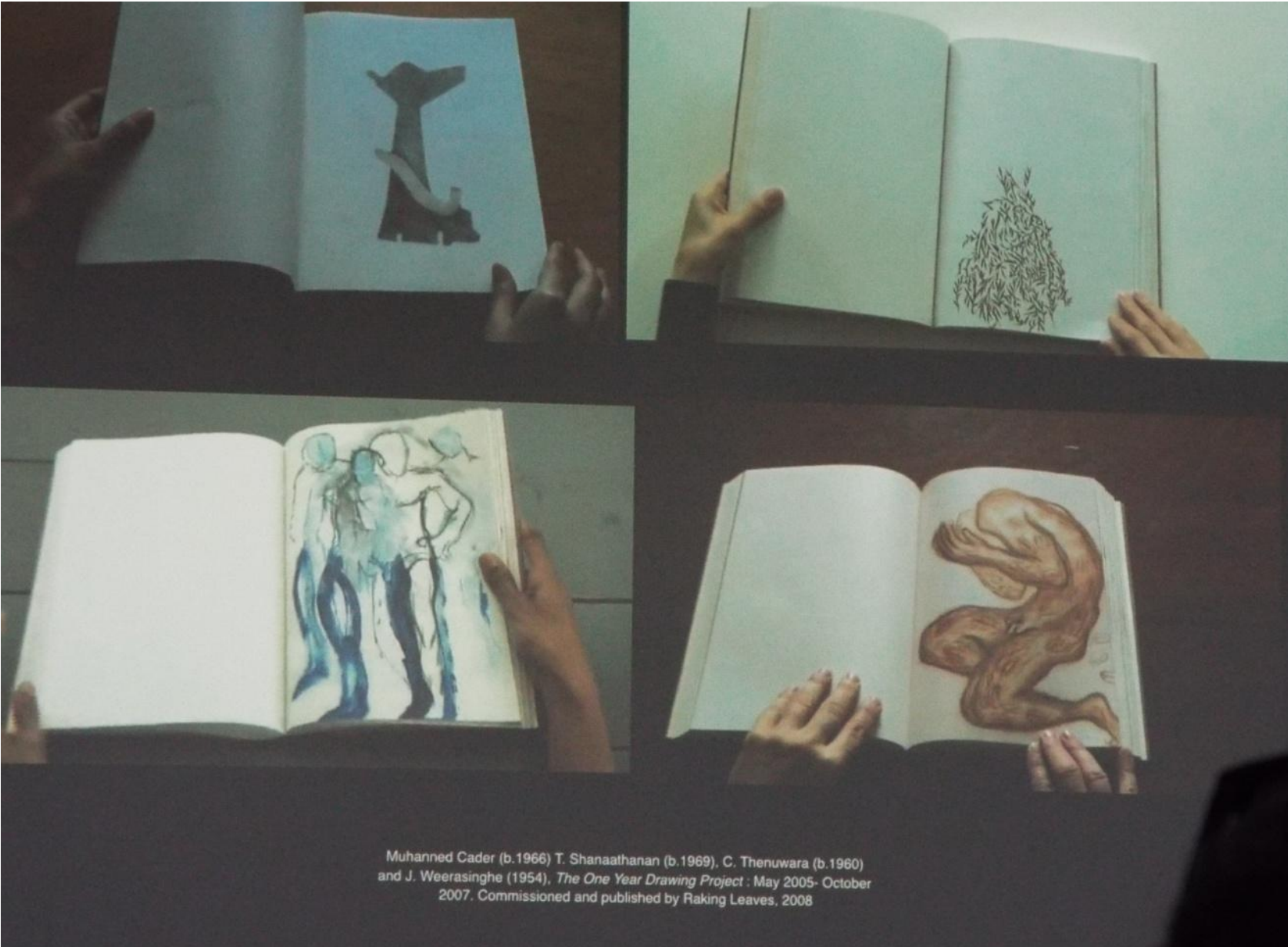‘Actions and Urgencies in Different Contexts’ | United Arab Emirates
Emergent Art Space artist Asmaa Youssef Elmongi, attended the March Meeting of the Sharjah Art Foundation, in Sharjah, UAE. Her report highlights talks and projects presented at the meeting from artists and curators from around the world. We will publish it here in three parts over the next few weeks.
March Meeting 2018: 'Active Forms' (Part 1)

One of the leading contemporary art and cultural foundations in United Arab Emirates, Sharjah Art Foundation held the 11th edition of its March Meeting program, providing the opportunity to collectively examine actions and urgencies in different contexts through practices in art, writing, film, music, performance, and architecture.
'Public Work' - Beirut
Abir Saksouk, Co-Founder
Abir Saksouk is one of the co-founders of 'Public Work', a studio of multidisciplinary design and research of public issues in Beirut. It began in 2012, when they started a collective of architects, designers, and urbanists. Saksouk explained that one of their main aims was to enable particular ways of "looking at the city" and urban processes, tackling urban inequalities, and examining how their professional practice could be merged with active engagement as individuals or as a collective.
They started their research and design interventions within three social spaces; the first is the disciplinary space of the studio or the office where they make drawings and designs; the second is the site of the intervention itself, could be the city, the neighborhood or the street; and the third is the space of the self - the designer’s position and positionality - for creating spaces of differentiation and inclusion.

Saksouk presented a project that is concerned with a new rent law in Lebanon, which led to the eviction of most of the tenants in the neighborhood. The law was issued without being based on any data, and was merely a political tool serving the interests of private estates and a very specific class of politicians and development investors.
They worked on a research project that looked at six neighborhoods in Beirut, and conducted workshops with tenants and students to produce data that emerge out of neighborhoods and give actual numbers and statistics about what it means to live and to be a tenant in Beirut. The findings that came out were multilayered, showing actual statistics, the number of tenants, how people access housing, and the challenges.
An important part of the investigation was also looking at transferred ownership, which referred to the future of the city that is being drawn and traced by real estate companies that are using incentives offered by the state to buy up properties in the city.
They were also tracing stories and narratives, as a large number of Beirut's residents were consistently evicted. Saksouk indicated that most of the projects, which started as research, carried through to a dissemination phase that was presented in Arabic, relevant to the local context. The presentations were in different forms: articles, videos, and/or neighborhood meetings. "We organized ideas of what we can demand for the neighborhood and discussed future policy changes and political demands", said the architect.

While the previous project was tackling housing in Beirut, another project tackled public space, and how to look at the rights everyone has to the space. This project, called 'Play at The City: Communal Making of Informal Football Fields', was started in 2014, with a very simple question: Where do children and young people play in Beirut?
On an aerial photo of the city, dated back to 2004, they started spotting empty fields made out of sand. When they visited ten of these fields, they discovered that almost 85% of them - communal outdoor play spaces - had been replaced by parking lots, new buildings, or demolition sites. They drew up a narrative timeline for each of them, investigating the history of their emergence, and how neighborhood youth organized, collected money, and put their own efforts into returning these sites into their own play spaces.
They decided to work on one of these fields with the neighborhood youth in order to affirm their claims and also rehabilitate them and preserve them from being lost. The project, in the Mar Elias Palestinian Camp in Beirut, was called “اللعب في المخيم “, or 'Play in the Camp'.
“Organizing is one of the most important outcomes of the network that we do, so these interventions - whether in the form of neighborhood meetings, or creating local community representatives that are able to manage specific ways of everyday life in the camp - are the most important outcomes of our research, design, and the city", said Saksouk.

'Raking Leaves' - Sri Lanka
Sharmini Pereira, Founder
Moving from Western Asia to its South, where 'Raking Leaves' - a nonprofit independent publishing organization – is based in Sri Lanka. Sharmini Pereira is an independent curator, publisher, and the director of 'Raking Leaves', which she founded back in 2008, when Sharmini wanted to find a way to present contemporary art that did not require a gallery, museum, or a space.
Sharmini presented a photo for the National Art Gallery in Colombo, Sri Lanka, where she curated her first exhibition, 'New Approaches in Contemporary Sri Lankan Art'. Sharmini is quite interested in the idea of reaching out to people, and to make it possible for those who are living in other countries to communicate with art practices from Sri Lanka. “Publishing was a way of reaching an audience,” said Pereira. She believes that there is a distinct relationship between books and public. She cited a quotation by Stephen Bury, a well-known writer:

“Artists books are books or book-like objects, the final appearance of which an artist has a high degree of control; where the book is intended as a work of art in itself”
'Raking Leaves' commissions artists who are making work in the form of a book. Sharmini mentioned the 1960s and 1970s when artist books began to take part in social-political activism in antiwar demonstrations by Fluxus. However, her objectives for artist books are different from those that were produced by Fluxus.
"All the projects that are produced by 'Raking Leaves' are mass produced" she said, "using a standard process that never costs more than 35 dollars."

The 'One Year Drawing Project' is a project begun by four artists in an attempt to understand the relationship between time, practice, collaboration, and dialogue within the context of contract. In 2005, the artists started to take part in an experiment that took them back to the idea of the exchange, which lasted up to 72 weeks and involved 52 exchanges of drawings. It took 18 months to be finish as they decided to correspond once a week. In 2008, the installation of the project was shown at Art Dubai, in the UAE.
“To get the book to the UAE, we had to get through the censorship channels that required not having any nudity, so, we blacked out all the areas that carry nudity.” said Pereira.
Another project, by Pakistani artist Bani Abidi, is 'The Speech Writer', done in 2012. The work consisted of ten small flipbooks.

The text in the book is a little transcript that interviews a man in an old region who is involved in a daily activity which has him sitting everyday in front of a microphone speaking to it. “It is a kind of silence cinema” said Pereira.
The full description of the project is published on the website of “Asia Art Archive in America”, through an interview that was held by Jane DeBevoise and transcribed by Hilary Chassé, titled “We Do What We Do: A Conversation between Bani Abidi and Sharmini Pereira”.